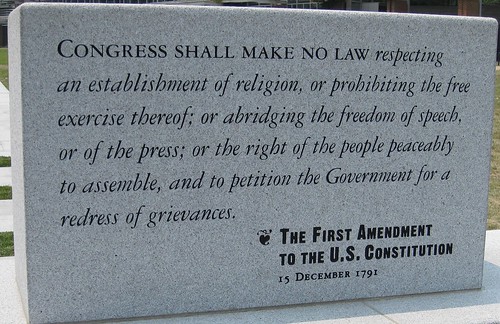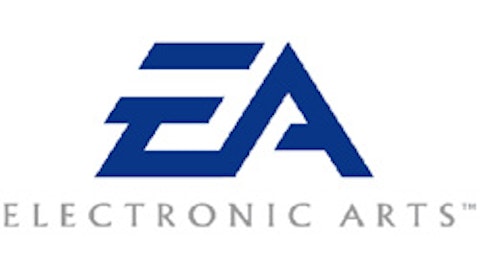Think you know everything about the NSA spying scandal? Think again. If you are an American citizen with access to a radio, TV, or a computer connected to the Internet, you most likely have heard about the NSA’s PRISM program. Allegedly, the National Security Agency (that’s what NSA stands for) has partnered with major corporations, such as Verizon Communications Inc. (NYSE:VZ), Google Inc (NASDAQ:GOOG), and Microsoft Corporation (NASDAQ:MSFT), for the purposes of monitoring the phone conversations and the Internet browsing histories of millions of Americans, as well as citizens of foreign states. Opinions on the matter are still torn, but the avid interest generated by this story is undeniable.
We have compiled a list of some of the most important things you may not know about the NSA spying scandal.
Let’s take a look at the countdown:
No. 5: How did the scandal break out?
 Photo Credit: Ben Sutherland
Photo Credit: Ben Sutherland
The story was first revealed in The Guardian, a British newspaper, which posted a copy of a secret court order which compelled U.S.-based phone company Verizon Communications Inc. (NYSE:VZ) to hand out records of domestic phone calls to the National Security Agency (NSA).
Additionally, it was also revealed that the NSA was running a program called PRISM, which was used to collect data from several big corporations, such as Facebook Inc (NASDAQ:FB), Microsoft Corporation (NASDAQ:MSFT), and Apple Inc. (NASDAQ:AAPL). Apparently, the information was leaked by one of the NSA’s contractors, a guy named Edward Snowden, who is currently hiding away in Hong Kong, trying not to get extradited back to American soil.
No. 4: What is the NSA, anyway?
 Photo Credit: DonkeyHotey
Photo Credit: DonkeyHotey
For those of you who had not heard about the NSA before the scandal broke out, the agency is part of the US Department of Defense. The NSA is running the most extensive surveillance program within the United States and the FBI and CIA often rely on reports issued by the agency to counteract potential terrorist plots.
No. 3: Who gives the NSA the authority to check my phones?
 Photo Credit: Ben Schueddekopf
Photo Credit: Ben Schueddekopf
The NSA is overseen by the US Congress. The Foreign Intelligence Surveillance Act (FISA) allows to gather data and records on foreign spies or terrorists. In addition, some of the NSA’s actions are permitted only through a warrant awarded by a judicial panel named the FISC (Foreign Intelligence Surveillance Court). Reportedly, the NSA was granted authority to tap phone conversations through such a warrant, which it used to force the Verizon phone company to hand over records for every single customer.
No. 2: So is the NSA able to hear and record my every single conversation?
 Photo Credit: ElectronicFrontierFoundation
Photo Credit: ElectronicFrontierFoundation
Well, no, not exactly. The NSA is not eavesdropping on your phone conversations per se; at least, that’s what they are claiming. Instead, they analyze a phone’s metadata, which consists of phone numbers called and duration of calls, for example. They then use the metadata to look for patterns that might match a certain profile.
No. 1: Why is the NSA spying scandal such a big deal?
 Photo Credit: elPadawan
Photo Credit: elPadawan
What has shocked the public opinion in the advent of the NSA scandal is that the agency was allegedly tracking phone and Internet records from the average citizen, regardless if he had done anything wrong or not.
It is perfectly understandable that someone who had done something in the eyes of the law, or there was at least a high suspicion of illegal activity, that particular person could and should be tracked. However, the concept is a bit harder to grasp when we’re talking about millions and millions of people who have not wronged the law or the state and who are having their privacy violated.





